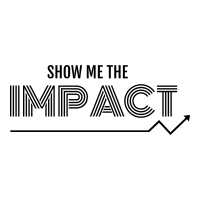Is “being kind” enough? Australia’s wellbeing and the coronavirus crash.
Yesterday my local Centrelink office was wrapped in a line of service users. As I passed by, I could feel the restless aching of insecurity stretching down the street and disappearing beyond eye-line.
The impacts of coronavirus have crashed into our lives at breakneck speed. The tightening of State borders, the shutdown of non-essential services and the terrifying increase in diagnoses will have already left no one untouched.
Some of the most cherished icons of Australian culture have been early victims. The sports news plays eerily with no fixtures and beach goers are scolded for their “selfish” refusal to take social distancing seriously.
The health and social fall out of coronavirus will not however be felt evenly across Australia. We know already that older people and those with existing health conditions are more in danger from the virus itself.
The queues outside Centrelink reflects the next wave of vulnerability. Some of these people will struggle to self-isolate because they cannot pay the rent. Some will be worrying more about filling the kitchen shelves with the next family meal rather than hoarding pasta. Some of their children won’t be homeschooled as the prospect of an internet connection slips even further from reality.
Australia is expecting the number of people on benefit payments to more than double in the next few weeks. This hints at the size of the precarious workforce, but others will still be heading out each day as they have no choice but to continue stacking supermarket shelves, providing care services and driving rideshares.
We are being urged to “be kind” as we head into the most profound socio-economic crisis, possibly since the last world war. This is accompanied by articles advising us to get our minds over the matter. We should stay positive, show goodwill and look after our neighbours.
This is a nice sentiment, but with a structural breakdown on this scale there needs to be a much more profound investment in our social fabric. Wellbeing is driven by both material and psycho-social factors.
If you live in one of Australia’s poorest communities, you can already expect to live 10 years less than those in richer neighbourhoods [1]. Living with deprivation means you are more likely to have a poor diet, breath worse air and do less exercise. Asthma, heart disease and diabeties rates suddenly stop feeling like a problem for tomorrow when coronavirus is sweeping across the country.
Inequality is also bad for social cohesion. Again, overcrowded homes and toxic household relationships are much more probable if you are at the bottom of the social ladder. But there is also a cost for those at the top, as those living in big houses, behind tall gates are less likely to know and trust their neighbours.
Australia is becoming a less equal society [2] and this pandemic will undoubtedly bring that into focus in the cruelest way possible.
We need to start talking seriously about a wellbeing rescue package to accompany health and economic plans. This should renew focus on the social determinants of health and the critical social, civic and care sectors which are working to make Australian society more inclusive.
There will be significant (and much needed) investments flowing into social causes in the coming months. I would urge donors and investors to focus on models with proven, lasting social impact and rather than stories of kindness and positive thinking.
[1] Seccombe, M, 2019, The Fatal Cost of Australia’s Rising Inequality, The Saturday Paper, available at https://www.thesaturdaypaper.com.au/news/economy/2019/11/02/the-fatal-cost-australias-rising-inequality/15726132009011, [Accessed 24 March 2020]
[2] The Productivity Commission, 2018, Is Australia becoming more unequal [online], Australian Government, available at https://www.pc.gov.au/news-media/pc-news/unequal, [Accessed 24 March 2020]
